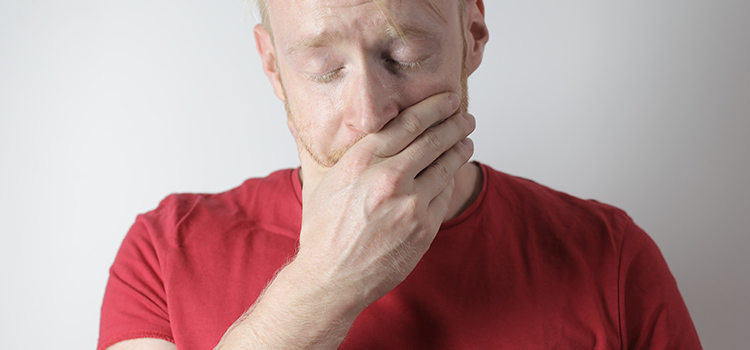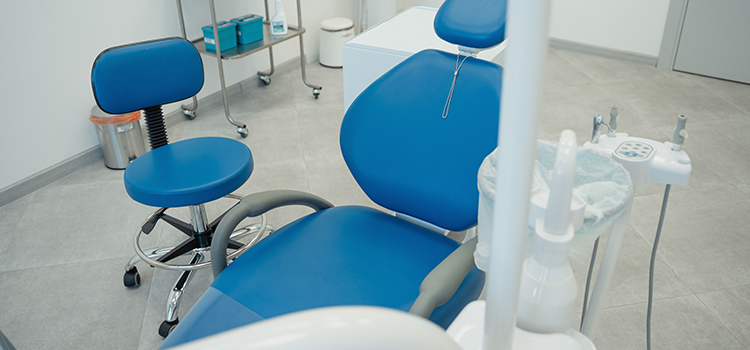Sinuses And Teeth
1st Aug 2021

Your sinuses and teeth are closely connected, so it makes sense that problems in one area could lead to problems in the other. In fact, dental problems can cause sinus problems and vice versa. Sometimes these issues stem from chronic sinus infections, and other times, it’s simply a passing cold that may cause sinus or tooth pain.
In some cases, a toothache in the upper molars can actually be a sign of a sinus infection. How are our sinuses and teeth connected and how can you achieve pain relief? Learn more below.

How Are the Sinuses and Teeth Connected?
Your sinuses are located in your cheeks, nose, and above your eyes. The sinuses are empty cavities and their job is to filter, warm, and moisten the air you breathe. A sinus infection typically happens when your sinuses fill with fluid. This can be a result of a common cold, allergies, or bacteria. A sinus infection can result in congestion, a sore throat, and post nasal drip.
The sinuses on the sides of your nose are called your maxillary sinuses, and they sit above the upper jaw. These maxillary sinuses are connected to the upper roots of your molars and may touch the nerves that are connected to your teeth as well. Thus, your upper teeth and maxillary sinuses are very close to each other and are even connected via the roots of your teeth. An infection in the maxillary sinuses is called maxillary sinusitis.

Can Sinus Infection Cause Tooth Pain?
Sinusitis, which is more commonly referred to as a sinus infection, occurs when the sinus cavities around the nasal passages become inflamed and fill with fluid or mucus. When this happens, the sinus infection can overlap with the upper teeth because they are in close proximity.
Sinus infections are incredibly common, with approximately one out of every eight people in the United States developing a sinus infection in their lifetime (Becker 2003). Common symptoms of sinus infections include toothaches (particularly in the upper back teeth), sinus congestion, sinus pressure, and dental abscesses.
As pressure builds up in your nasal cavity during acute sinusitis, your teeth may begin to feel the pain. While pain and pressure are most common in your upper teeth, the discomfort can spread to your lower teeth as well. You may feel the pressure and discomfort in your teeth change when you bend over or change positions.
Can Teeth Pain Cause Sinus Pain?
Similarly, tooth pain can lead to sinus pain as well. Sometimes, dental infections can spread to the maxillary sinuses. A regular toothache is an example of a dental cause of chronic sinusitis, which is characterized as a sinus infection that lasts 12 weeks or more. Additionally, tooth infections under crowns or root canals often cause sinus inflammation.
It can be difficult to determine the root cause of the problem when you are experiencing pain in both sinuses and teeth at the same time. One tipoff is the location of the tooth pain. When pain spreads across multiple teeth, it is more likely caused by the sinuses. When pain is localized to one tooth; however, it is more likely that it is caused by a problem with the tooth itself.

How to Treat a Sinus Infection
According to the American Academy of Allergy, Asthma, and Immunology, “Sinus infections generally require a mix of therapies. Your physician may prescribe a medication to reduce blockage or control allergies, which helps keep the sinus passages open.” Thankfully, home remedies can be helpful to relieve symptoms as well.
Sinus infections often clear on their own within a few weeks, but some remedies can help you feel more comfortable while you are healing. At home, you can try a saline nasal spray (or saline solution), which clears moisture buildup in the sinuses. Similarly, a neti pot is a device that flushes your sinuses to clear blockages. You might also find relief from over-the-counter pain relievers and decongestants. Antibiotics often help fight bacterial infections in the upper teeth before it spreads to the sinus cavities.
As with healing from any illness or injury, be sure to drink water and get plenty of rest. As you recover, it may be helpful to elevate your head to help fluid drain from your sinuses.
If your sinus infection fails to clear on its own, contact your healthcare provider. He or she may prescribe medication to help your body get rid of the infection.
Related Articles:
What to Do If You Have Sinus Pain and Tooth Pain
Any time you experience pain that is concerning to you, your first step should be to speak to your dentist or healthcare provider. A health professional can assess your condition and potentially take x-rays to identify the source of your pain. Be careful not to self-diagnose. Symptoms of sinus conditions can be confused with other issues, such as gum disease or tooth decay. Additionally, it can be difficult to identify whether dental problems or sinus problems are the culprit.
Because your sinuses and teeth and specifically the roots of your upper teeth are so close, pain caused by your sinuses may extend to your teeth and vice versa. If your healthcare provider has confirmed you have a sinus infection, many home remedies can relieve your symptoms until the infection clears.
References:
- Moore, A. (2020). Sinusitis. American Academy of Allergy Asthma & Immunology. https://www.aaaai.org/Tools-for-the-Public/Conditions-Library/Allergies/sinusitis
- Cronkleton, E. (2019). Sinus Toothache: Causes, symptoms, and treatments. Healthline. https://www.healthline.com/health/dental-and-oral-health/sinus-toothache#_noHeaderPrefixedContent
- Cleveland Clinic Writing Staff. (2020). Acute sinusitis. Cleveland Clinic. https://my.clevelandclinic.org/health/diseases/15285-acute-sinusitis
- Becker D. G. (2003). Sinusitis. Journal of long-term effects of medical implants, 13(3), 175–194. https://doi.org/10.1615/jlongtermeffmedimplants.v13.i3.50
- Cleveland Clinic Writing Staff. (2020). Chronic sinusitis: Symptoms, causes, treatments. Cleveland Clinic. https://my.clevelandclinic.org/health/diseases/17700-chronic-sinusitis

- Most Popular
- Hard Outside, Soft Inside
- 2MM Thick
- Moderate / Heavy

- Most Durable
- Hard Materials
- 1.5MM Thick
- Heavy / Severe

- For Day Time Use
- Thin, Barely Visible
- 1MM Thick
- Light / Moderate

- For Clenching
- Flexible & Soft
- 1.5MM Thick
- Light / Moderate

